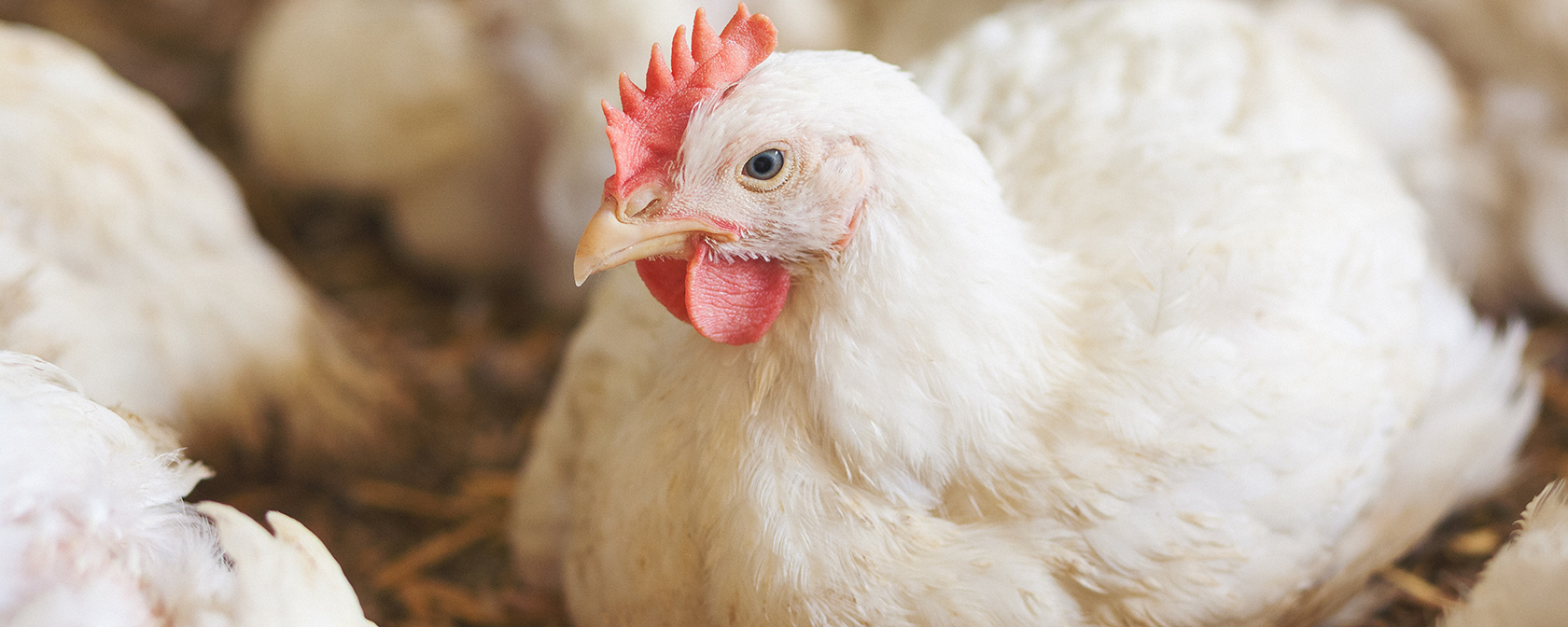By Sara Amundson and Kitty Block
Slaughterhouses are hotspots for the coronavirus, with tens of thousands of infections reported among American workers since the onset of the pandemic last year. Yet, appallingly, at the height of the crisis last spring, the Trump administration ordered that these facilities should remain open. To make matters worse, the administration granted a record number of waivers to 16 chicken slaughter plants, allowing them to dial up the speeds at which they operate from a breakneck pace of 140 birds per minute to a mindboggling 175 birds per minute.
This reckless decision didn’t just increase health and safety risks for workers, who already struggle to keep up with fast line speeds at slaughterhouses; it created an even bigger animal welfare nightmare and it undermined the safety of the food Americans put on their tables. The Washington Post reported that chicken slaughter facilities with line speed waivers are 10 times as likely to have coronavirus cases compared to chicken plants without such waivers.
Today, in an effort to reverse these terrible changes and related actions, Sen. Cory Booker, D-N.J., and Reps. Rosa DeLauro, D-Conn., and Bennie Thompson, D-Miss., reintroduced the Safe Line Speeds During COVID-19 Act (S. 713/H.R. 1815) in the U.S. Senate and House. The bill, which has a strong set of at least 33 additional original cosponsors, would slow line speeds at these 16 slaughterhouses and other meat and poultry slaughter plants for the duration of the current health crisis.
The bill would suspend a draconian 2019 rule that eliminated speed limits altogether for killing pigs and shifted responsibility for initial sorting of the live animals from federal inspectors to plant workers—a decision that increased the risk of improper treatment of pigs, particularly those too sick, injured or exhausted to stand or walk. It would also prevent any new rule from being developed or implemented to increase line speeds.
Slaughterhouses are already full of abject cruelty. For instance, workers at chicken slaughterhouses, working in cold, slippery conditions and with dangerous equipment, struggle to keep up with the rapidly moving slaughter lines. They grab the chickens and slam them into shackles, injuring the animals’ fragile legs. Some birds miss the throat-cutting blade and enter the scalder—a tank of extremely hot water—alive and fully conscious, resulting in a terrible death.
Slaughterhouse workers experienced injury rates nearly 2.5 times higher and illness rates almost 17 times higher than the average for all industries, according to the Bureau of Labor Statistics. Forcing workers to process the animals faster also increases the risk of contaminated meat being introduced into the U.S. food supply.
The last administration was also working on a new rule that would have allowed all qualifying chicken plants to operate at the higher speed without even applying for a waiver. Fortunately, the Biden administration, in one of its first actions, withdrew that pending rule. We will continue to maintain pressure on the Biden administration to ensure that it does not issue any similar rules increasing speeds for chicken plants, and that it takes steps to slow down line speeds across the industry by unwinding the waivers already granted to chicken slaughterhouses and by withdrawing the harmful 2019 rule that eliminated maximum line speeds for pig slaughter.
Congress is focusing its attention on this issue right now and last week, Rep. DeLauro chaired an appropriations subcommittee hearing on Health and Safety Protections for Meatpacking, Poultry, and Agricultural Workers, with Reps. Bonnie Watson Coleman, D-N.J., and Katherine Clark, D-Mass., joining her in shining a spotlight on line speeds. We commend them and all the sponsors and cosponsors of today’s bill for taking a stand, along with then-Rep. Marcia Fudge, D-Ohio, who first introduced this legislation last July and has just been confirmed as the secretary of Housing and Urban Development.
We will be pushing for swift passage of the Safe Line Speed During COVID-19 Act, and we urge you to call your U.S. Senators and Representative and urge them to support it as well. The only entities lobbying for increased line speeds are slaughterhouse owners seeking to make bigger profits. American workers, consumers and animals stand to gain nothing from these changes, but they do have a lot to lose.
Kitty Block is President and CEO of the Humane Society of the United States.




